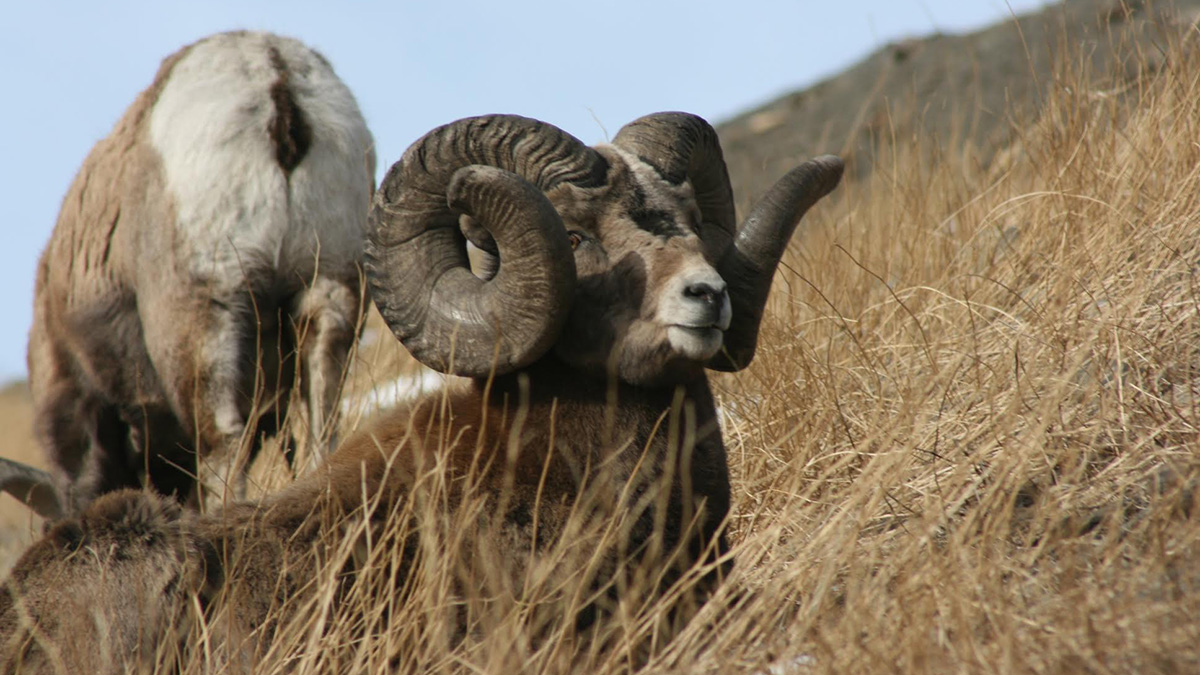Esteemed UAlberta ecologist Mark Boyce to receive Miroslaw Romanowski Medal
 Supplied
SuppliedFrom studying sage-grouse sex to run-ins with angry black bears, Professor Mark Boyce’s conservation efforts have earned him a medal from the Royal Society of Canada.
Boyce, an ecologist in the Department of Biological Sciences, will receive the Miroslaw Romanowski Medal later this fall for his work in conservation biology. The medal, along with a cash prize of $3,000, is awarded annually to a scientist whose work has significantly contributed to environmental problem-solving.
The medal was first awarded in 1994 to now-retired University of Alberta ecology professor David Schindler, a good friend of Boyce’s. Schindler is known for his research on algae blooms in Ontario lakes that led to the banning of phosphorous in detergents.
“Being recognized with this medal as a leader in the whole environmental science area … is definitely an honour,” Boyce said.
Going into his 18th year at the U of A, Boyce is supervising many research projects including studies on cougars, bighorn sheep, wolverines, and elk in Alberta, as well as a project on sitatunga, an African antelope in Uganda. Boyce’s research projects have resulted in protections for northern spotted owls, grizzly bears, and greater sage-grouse.
Boyce attended undergraduate school at Iowa State University and the University of Alaska, and received his Master’s and PhD from Yale. As a PhD student, Boyce realized that the theoretical work on genetics he was planning on doing with guppies in the lab was not for him, and opted for the outdoors instead.
“I didn’t want to do that kind of work, I liked doing field work,” Boyce said. “So I chucked it, and (now) I do conservation biology.”
Since then, Boyce has had exciting moments in the field. One time, for example, he and his son found a black bear cub “bawling and crying and making a terrible fuss” while stuck in Boyce’s bear trap. When they approached the cub to free it, its mother charged and sent the researchers running to hide in their truck. They were able to release the cub when a nearby graduate student distracted the mother with a chainsaw.
“You get memorable experiences every time you go into the bush it seems,” Boyce said.
Reflecting back on his career in ecology, Boyce remembers a study he did 20 years ago on sage-grouse mate selection. Sage-grouse females are highly choosy with their mates, and Boyce wanted to learn exactly what made certain males attractive. He discovered that females preferred males who were resistant to whichever parasite was plaguing the population at the time, leading to strong sexual selection.
“My sage-grouse sex story is perhaps one of the more clever biology projects that I’ve worked on,” Boyce said.
Boyce said his love of fishing, hunting, and the environment inspired him to pursue ecology as a career.
“I couldn’t imagine wanting to do anything else,” he said. “I learned a lot being in the out of doors, it’s what I wanted to do with my time.




